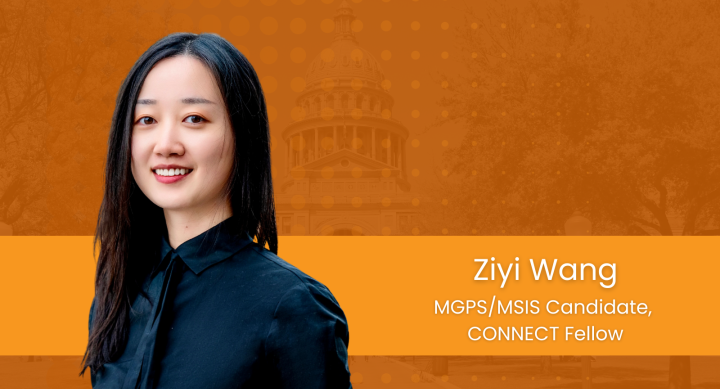
In spring 2023, RAISE Texas began working with CONNECT to examine the effect that medical debt has on Texans, especially those who are low-income and in communities of color. CONNECT fellow Ziyi Wang worked with RAISE Texas to further develop the data needed to propose model bills in the 2025 state legislative session addressing medical debt and healthcare barriers in the state.
“Medical debt and student loan debt are two significant barriers to being able to save and build assets,” explained Elizabeth Colvin, Executive Director of RAISE Texas. “Medical debt has additional complications, where people are less likely to address their physical or mental health because of existing medical debt or fear of medical debt."
RAISE Texas is a statewide coalition working to ensure that every Texan has the power to build sustainable wealth and prosperity. They provide resources, training, technical expertise, and advocacy to help community leaders and organizations support financial health in their community and expand asset-building opportunities across Texas.
The spring 2023 CONNECT project was focused on identifying and synthesizing data sets on the current state of medical debt in Texas. This data was then analyzed to focus on the impact of medical debt relative to race, gender, and zip code across Texas. Through this analysis, it became evident that the problems of high medical debt and low rates of healthcare coverage were more prevalent in communities of color. CONNECT fellow Ziyi Wang also conducted a series of interviews with Texans impacted by medical debt to gather data on how the issue affects their daily lives.
“One thing that really hit me was the personal narrative of it,” said Marina Garcia, Project Manager at RAISE Texas. “I sat in on interviews with Ziyi and heard stories that shed light on how it truly affects peoples’ lives on a personal note.”
In these interviews, Garcia heard stories from people who were foregoing medical care, often for critical care like diabetes or cancer treatment, for fear of medical debt and not wanting to be a “burden to the system.” Some people shared experiences of having to choose between medication and basic household needs. Part of the problem, she says, is that the healthcare insurance system is difficult to navigate.
“More people are eligible for affordable health insurance, but they don’t realize it,” Garcia explained. “They need navigation help to really access those benefits.”
After analyzing existing data and conducting interviews, Wang summarized her research findings into a report that included policy recommendations and other action steps. This project was the first time she had the chance to work using a mixed-methods research approach.
“The CONNECT project let me apply the research methods we studied in class to actual problems,” said Wang, who is a dual degree student at the LBJ School of Public Affairs and the School of Information. “It’s like solving real puzzles, and I love the hands-on experience it's giving me for future consulting adventures.”
Wang, who recently completed her second CONNECT cohort, is interested in consulting as a future career after graduating this spring.
“Helping her come to that decision about her career choices, the fact that we were able to do that for her, really filled my cup,” said Garcia.
RAISE Texas built upon the data from Wang’s research in a second CONNECT project last fall and will return this spring to work with a new CONNECT student and national experts on the next stage. The spring 2024 CONNECT project will include identifying bills in other states that have passed and examining how those impacted medical debt in the state. From there, the team will put together recommendations of similar bills that have the best chance of passing in Texas, with the goal of introducing one or two model bills in the 2025 State legislative session.
For this stage of the project, RAISE Texas will not only be working with CONNECT but also with a new professional development program at UT’s Dell Medical School, Courageous Leaders for Health Improvement, for guidance and strategies on problem-solving to drive systemic change in health care in Texas.
“We’re building on the resources that UT Austin provides to the community, to community leaders, and to nonprofits,” said Elizabeth Colvin. “Access to resources and experts at UT Austin are extremely helpful to a small organization like ours.”